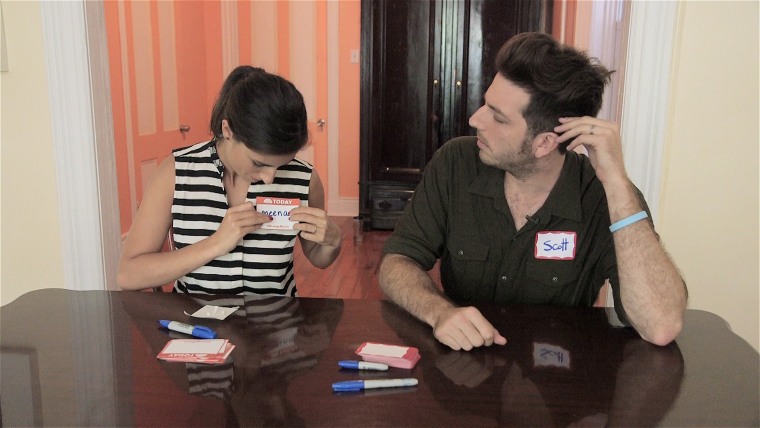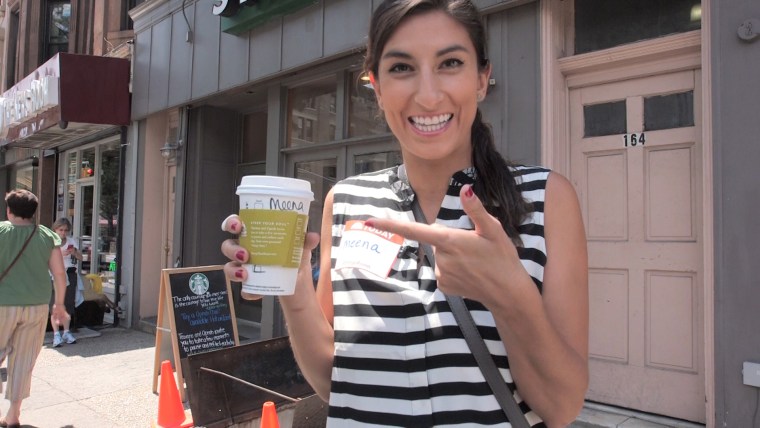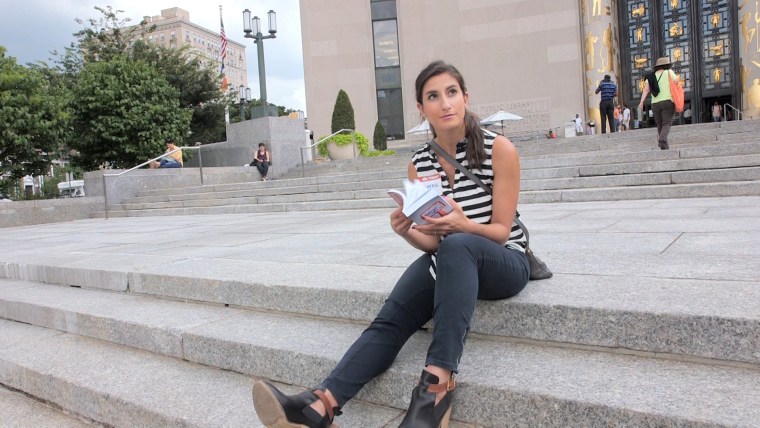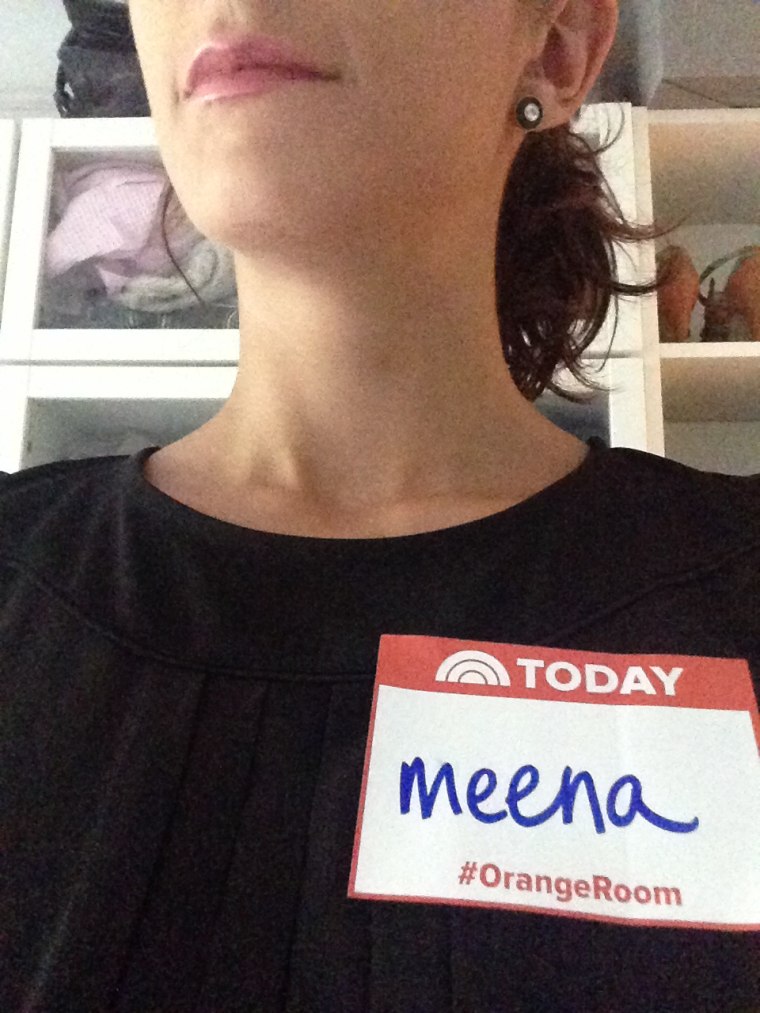Chances are, if you're a human, you've worn a nametag. And chances are that when whatever event required wearing that nametag was over, you peeled it off, crumpled it up, and tossed it in the trash.
But what if you kept wearing it? Would strangers treat you differently if they knew your name? Would people be more friendly? Would you act nicer?

That's what TODAY's Carson Daly started to wonder recently, after he had a funny interaction with a woman visiting the Orange Room who happened to be wearing a nametag. When he used her name in conversation, he was blown away by her reaction.
WATCH: Carson Daly explains the story behind TODAY's nametag experiment
"She just stopped and she was in shock — she was stunned that I knew her name," he remembers. The moment was such a nice surprise that Carson was inspired to suggest a little social experiment: Wear a nametag all day, and see what happens.
Challenge, accepted.
Being a pretty shy person, I was a little nervous to plaster on a nametag and put myself out there for The Great Nametag Experiment, so I sought out an expert to give me some pointers. A little Googling led me to Scott Ginsberg, who just so happens to have been wearing a nametag for the last 14 years.
That's right: 14 years. He started wearing it in college as a joke, but kept it going because he loved the reaction. "Instantly, people were friendlier and saying 'hello' — cute girls saying 'hi,'" Ginsberg says. "I just decided I would wear a nametag all day, every day, for the rest of my life."
The nametag has since led him to meet thousands of people and make countless friends, and he's used the experience as the basis for 27 books and his business as a speaker and strategist. "What surprised me was not so much how other people changed, but how I changed," he says. "I became friendlier. I was more open."
VIDEO: TODAY test drives wearing a nametag
After getting some tips from him on how to wear my nametag (hint: above the sternum), I hit the streets of New York City to see if people would treat me differently. It made a huge difference at Starbucks (they got my name right, no questions asked!) and in a few other stores, where shopkeepers made a few good-natured jokes. Out on the street or on the subway, even though I felt very aware (and awkward) that I was wearing it, hardly anybody called me out, though I got a few stares. As Ginsberg told me, in Times Square, wearing a nametag is hardly the kind of thing that stands out.

I did get the feeling that if I stuck with wearing a nametag, I could probably have a lot more meaningful interactions with the people I pass by on a daily basis — if I wanted to. I had a nice chat with a man who runs a pretzel cart in midtown, who told me about his career as a filmmaker in Egypt and asked my advice on how to start his own website. I also talked to the guy behind the register at my regular Dunkin' Donuts, who pointed and shouted my name — which led to me asking his name — the first personal interaction I've had there in a year and a half of saying "medium milk and sugar" every morning.
So are Carson Daly and Ginsberg (and Elaine, from "Seinfeld," if you remember the nametag episode) on to something? Does wearing a nametag make the world friendlier?

J. Keith Murnighan, a professor at Northwestern University's Kellogg School of Management who studies social interaction, says wearing a nametag can certainly encourage positive communication. "I see your name and, bingo, away we go!" he says. "It opens the door."
He also echoed another theme of Ginsberg's — that nametags lead to accountability. "If you're less anonymous, then you're likely to be more responsible, ethical, moral," he said.

I can tell you from my limited personal experience that this was true — while wearing my nametag, I accidentally knocked into a woman a little too hard on the subway platform, and totally over-apologized because now that I wasn't just another anonymous face, I wanted her to think I was a nice person.
Adam Alter, a professor at NYU's Stern School of Business who has written about the power of names, notes that wearing a nametag does bring some other backstory to the situation, since our names carry their own history.
"We tend to like people with simpler, easily pronounced names," he says, "and we also draw lots of information from a name — where a person’s from, how old they are, their likely ethnic or racial heritage, and so on."
That being said, Alter agrees that broadcasting your name could certainly invite friendliness. "Wearing a nametag might signal that you’re open to interacting with other people, which might encourage them to approach you," he says.
"There’s a theory known as reciprocal disclosure, which suggests that friendships are built on a foundation of mutual disclosure. When you share a piece of personal information — a name, for example — you signal to other people that you’re willing to interact with them. In turn, they might open up to you, share a piece of personal information that further strengthens the relationship, and so on. So yes, wearing a nametag might encourage people to approach you — and, in time, it might become the first step in a budding relationship."
Meena Hart Duerson is a senior editor at TODAY.com. Find her on Twitter here.